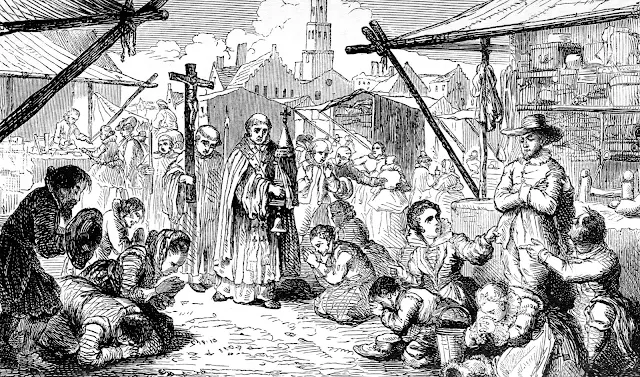"I speak as to wise men; judge for yourselves what I say.
16
The cup of blessing which we bless, is it not the communion of the blood of Christ? The bread which we break, is it not the communion of the body of Christ?"
1 Corinthians 10:15-16
Every word of God is pure, and all have deep significance. Recently God has been teaching me the meaning of the Greek word often translated "communion" and "fellowship" in the Bible: koinonia. According to the Strong's Concordance, the word "koinonia" is translated into English King James Version as: "fellowship" twelve times, "communion" four times, and "communication," "distribution," and "contribution" once each. Whereas "fellowship" and "communion" can seem subjective and vague, the last three words effectively paint the picture of koinonia in practice.
"Fellowship" is a word often loosely connected in church circles with gathering with other Christians for worship, or to share a meal or activity. Koinonia does not occur by virtue of people being in the same building at the same time or doing similar things: it only happens when we communicate concerning things which glorify God, distribute to one another of what God has provided for us, and contribute to the benefit of others according to the gifting and resources God has freely given. When the church was first established, Acts 2:42 describes the culture: "And they continued steadfastly in the apostles' doctrine and fellowship, in the breaking of bread, and in prayers." The apostles contributed through the ministry of the Word and prayer, and the people communed with them. Koinonia is not fostered through receiving, but primarily through giving of what you have received from God. This is practically seen when disciples sold their properties and laid all their proceeds at the feet of the disciples to disperse to those who had need (Acts 4:32-35). That is koinonia.
People commonly refer to the Lord's Supper as "taking" or "receiving communion." Gathering in one accord and eating of the bread which symbolises the broken body of Jesus and drinking of the grape juice (fermented or not) that symbolises the shed blood of Christ is in obedience to Christ's command, that we remember and proclaim His death until He returns. But "communion" is not a ritual, nor is it simply something to be received. If we truly desire communion with Jesus Christ, we must communicate, distribute, and contribute. We are called to offer more than our presence, open mouths, and bellies: communicating to God through prayer, offering up ourselves sacrificially, freely giving to God all of our lives. Gladys Aylward calls this, "our completed tithe." God does not ask for one hand or a finger, for the blood of Christ has purchased our total life, mind, body, and soul for eternity. Koinonia is giving to God what is rightfully His by practical contribution for the edification of the Body for God's glory.
Koinonia is not what you can receive from God, but what you can give back to Him compelled by His love. Fellowship and communion at your church is not about rituals, programs, or joint activities, but the giving of yourself, your time, gifts, and abilities to edify others for the glory of God. The next time you gather around the LORD's table to remember the price He paid for you, will you remember to contribute yourself? Jesus has given all: what have you given Him?
